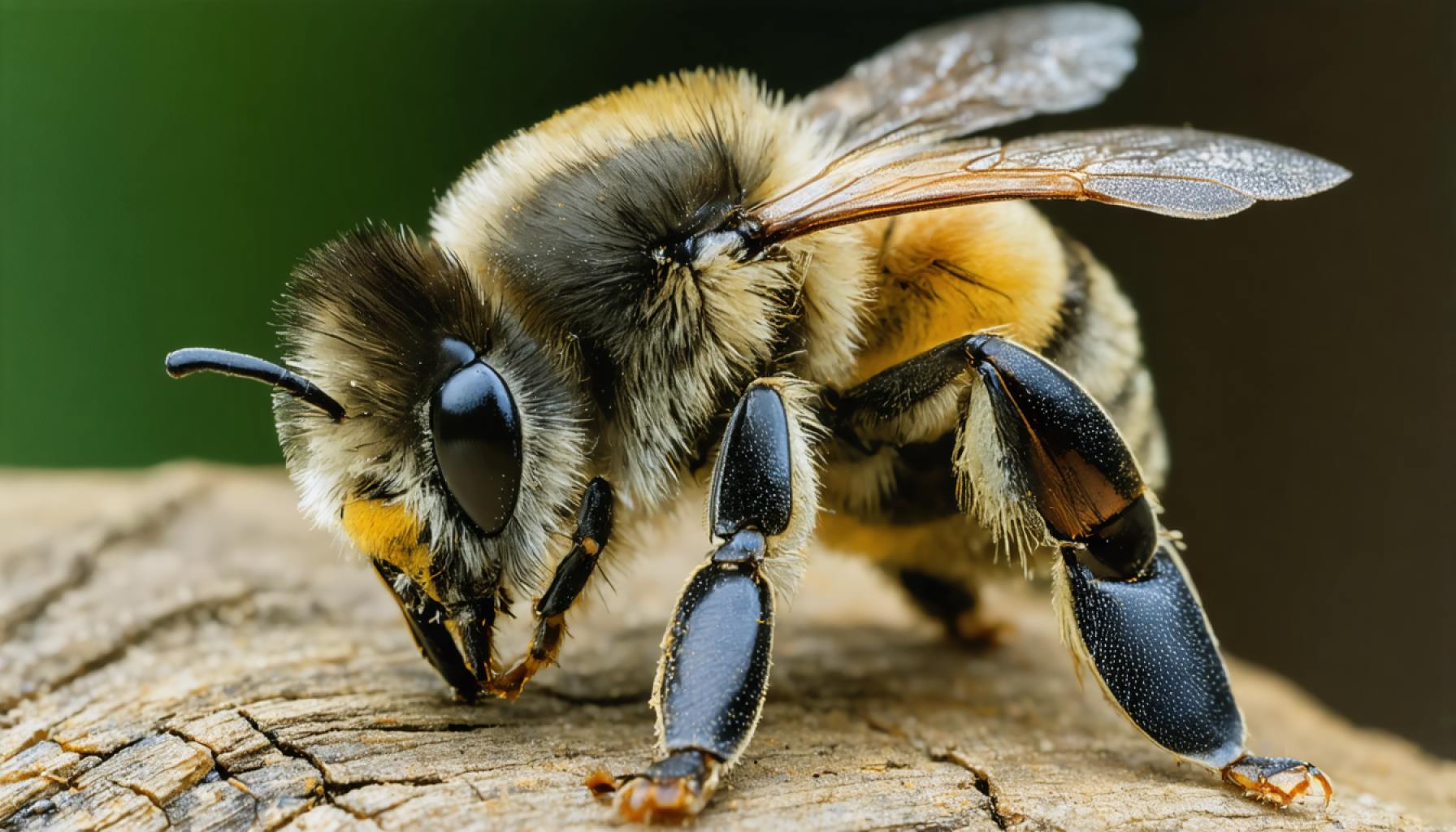- Bees play a crucial role in pollinating nearly 80% of flowering crops, equating to a third of our diet.
- These essential pollinators face threats from pesticides, habitat loss, climate change, and diseases like the varroa mite.
- Monoculture farming and urbanization reduce bees’ access to diverse, nutrient-rich flora, harming hive health.
- Innovative solutions such as wildflower corridors, urban beekeeping, and stricter pesticide regulations offer hope.
- The preservation of bees highlights our interconnectedness and underscores the need for responsible environmental stewardship.
Amid fields that sway with golden sunlight and orchards humming with life, the unyielding struggles of Earth’s tiniest pollinators remain largely overshadowed by our disconnected gaze. Picture a honeybee navigating an increasingly perilous world—a vivid dance through landscapes once teeming with fragrant possibility, now sprinkled with uncertainty. The metamorphosis from thriving ecosystem to precarious survival has starkly underscored the fragility of these essential creatures that quietly sustain our global food supply.
Bees orchestrate the seamless balance of our ecosystem, pollinating nearly eighty percent of our flowering crops, translating to a third of what we eat. However, as their wings beat tirelessly against the odds, they battle an imposing array of threats meticulously woven by modernity itself. Pesticides, habitat loss, climate change, and disease have converged into a web of adversity, tightening around the bustling communities of these industrious insects. The varroa mite, for instance, a tiny yet formidable parasite, has encroached upon colonies worldwide, weakening resilience with its insidious grip.
In fields where bees once thrived, monoculture farming has painted vast stretches of land in monotonous hues of singular crops, depriving bees of the diverse and nutrient-rich flora necessary for vigorous hive health. The eradication of wildflower meadows and the relentless expansion of urban landscapes have further rendered a chilling plight. With landscapes transformed into concrete cities, the symphony of buzzing wings grows ever fainter.
Yet, amid these shadows, the indomitable spirit of bees persists, sparking a beacon of hope. Research and innovation have birthed solutions that strive to alleviate their plight. The introduction of wildflower corridors, urban beekeeping initiatives, and stringent pesticide regulations stand as testaments to our capability to reverse course. Individuals and communities have formed alliances, nurturing gardens with pesticide-free flora, acknowledging that the gentle visitor on a petal is an ally in our mutual survival.
Ultimately, the fate of bees serves as a reflection of our stewardship of the planet. Each action taken to preserve their existence reinforces our own interconnectedness to the web of life. As we champion the resilience of these miniature heroes, let their tenacious hum remind us that the small creatures of this world are the architects of monumental change. Our shared future is tethered to their survival, and therein lies the imperative to protect, support, and cherish the ceaseless flight of the honeybee.
Unveiling the Secret Struggles of Honeybees: How We Can Save Our Pollinators
Understanding the Importance of Honeybees
Honeybees are crucial to our ecosystem, responsible for pollinating nearly 80% of flowering crops and affecting approximately one-third of the food we consume. Their role as pollinators ensures the reproductive success of plants, securing a diverse food supply and maintaining the ecological balance.
Pressing Threats to Honeybees
1. Pesticides: Neonicotinoids and other chemical pesticides disrupt the nervous system of bees, reducing their ability to forage, navigate, and ultimately survive. Recent studies have shown even sub-lethal exposure can cause significant harm ([Source: USDA](https://www.usda.gov)).
2. Habitat Loss: Urbanization and agricultural intensification have led to large-scale habitat fragmentation. The reduction of wildflower meadows and diverse habitats makes it difficult for bees to find the pollen and nectar needed for thriving hives.
3. Climate Change: Changing weather patterns affect flower bloom times and the available food resources for bees, challenging their survival and influencing their pollination activity.
4. Disease and Parasites: The varroa mite, a serious pest to honeybee colonies, weakens bees by transmitting viruses. Addressing this involves careful monitoring and integrated pest management practices.
How to Support Honeybee Populations
– Create a Bee-Friendly Garden: Plant a variety of native flowers, herbs, and shrubs that bloom throughout the seasons. Avoid pesticides and instead opt for natural pest control methods.
– Support Local Beekeepers: Purchase honey and wax products from local sources to support sustainable agriculture.
– Advocacy for Policy Change: Engage in conversations and policy change initiatives for stricter regulations on pesticide usage and habitat protection.
– Participate in Community Efforts: Join or organize community gardens and green initiatives that promote biodiversity.
Future Prospects and Innovations
– Sustainable Farming Practices: Encourage rotational crops and permaculture to promote biodiversity.
– Research on Bee Biodiversity: Studies focusing on pollinator health and genetics can provide data-driven solutions to enhance bee resilience ([Source: FAO](https://www.fao.org)).
– Urban Beekeeping Initiatives: Cities across the globe are embracing rooftop and community hive projects, impacting urban pollination positively.
Conclusion & Quick Tips
The survival of honeybees directly connects to human well-being. Through mindful ecological practices and community-driven actions, we can ensure a sustainable future for them and for us. Remember, small actions like reducing pesticide usage and planting bee-friendly gardens make a monumental difference.
For more on sustainable practices and ecological initiatives, visit the National Geographic website. Embrace the gentle hum of honeybees in your environment as a reminder of our shared responsibility to protect and cherish these vital pollinators.










